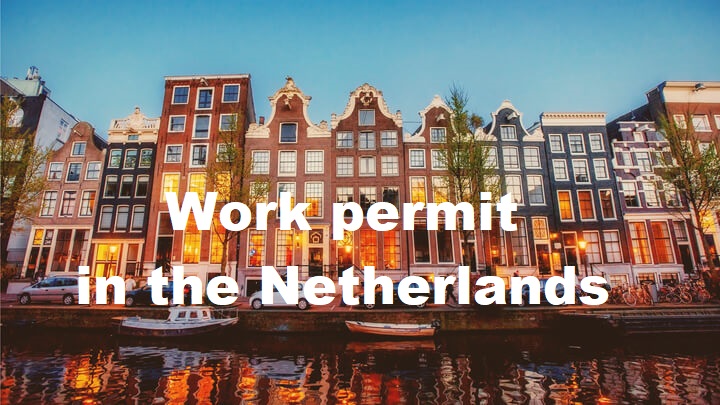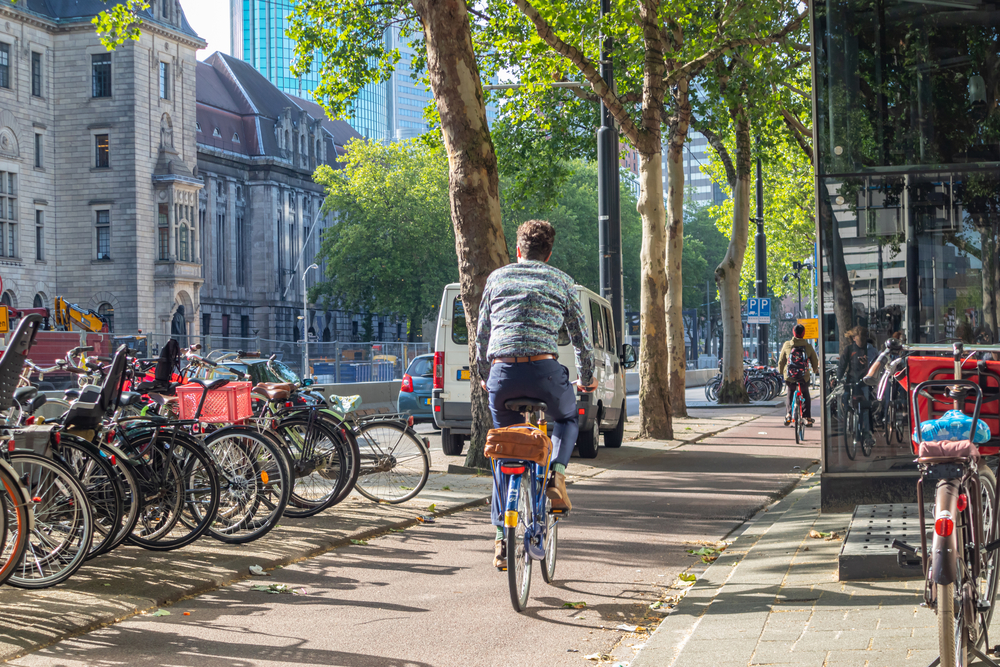Work permit in the Netherlands
Do you want to work in the Netherlands but you are not from the European Union?
To work in the Netherlands, a non-EU national must have a valid work permit. The permission can be requested by either the employee or their potential employer, however, this is typically the case.
A work permit is only good for the company that requests it, and it expires if/when the employee quits. The Netherlands does not provide universal work permits.
Who requires a Dutch work visa?
As citizens of the EU, EEA (the EU plus Iceland, Lichtenstein, and Norway), and Switzerland enjoy the right to free movement within one another, expats from these countries do not require a work or residence visa for the Netherlands. At the beginning of 2014, complete freedom of movement was implemented for the newest EU members, Bulgaria and Romania. Croats no longer require a Dutch work visa as of July 1, 2018, in order to work there.
Additionally, foreign nationals who sometimes come to the country to undertake specific sorts of employment for a brief length of time do not require a work permit (such as press service staff, musicians and visiting lecturers). To work in the Netherlands, every other foreign national will require a certain type of authorization.
Work permit categories in the Netherlands
The following categories of work permits are applicable to the Netherlands:
- GVVA or Single Permit
- Highly skilled migrant permit
- Orientation year (zoekjaar) permits for expat graduates
- Entrepreneur permit
GVVA / Single Permit in the Netherlands
The GVVA/Single Permit consists of a Dutch residency permit (verblijfsvergunning) and a second document that specifies which employer and under what circumstances the foreign national is allowed to work. The GVVA is designed for foreign employees and trainees who will remain in the Netherlands for a period longer than three months and who are not citizens of the EEA or Switzerland.
An employer must demonstrate that attempts have been made to find a qualified employee in the Netherlands and the European Union before submitting a GVVA work permit application. A company should wait to start looking for workers outside the EU until these attempts at recruiting have failed to produce a suitable applicant.
The potential employer should typically submit the GVVA application to the Dutch Immigration and Naturalization Department (IND). You may obtain the necessary application paperwork from their website. The IND will seek the UWV (Dutch social security agency) for guidance on whether the potential employee is permitted to live and work in the Netherlands after the fee has been paid and all required paperwork has been completed.
The UWV's evaluation is based on the Aliens Employment Act's requirements (Wav). Based on the UWV's recommendations, the IND will decide. The IND will notify the employer if the decision is favorable and GVVA is issued.
The IND will notify the employer that the foreign worker may pick up both documents in person once the GVVA is ready. During the application process, it's possible that the UWV will get in touch with the employer or the applicant to clarify any details about the application or job.
Who cannot submit a GVVA/Single Permit application
Students who aspire to work, asylum seekers, seasonal workers, personnel moved within a multinational business, employees who arrive for a maximum of three months. These people need to apply for a TWV work permit separately from a UWV.
Dutch work experience and the GVVA/Single Permit
People traveling to the Netherlands for job or study purposes, as well as participants in the Canadian Young Workers Exchange Program, must have a GVVA Single Permit (YWEP). Once more, the application is often submitted by the employer (or sponsor in this instance).
Permit for highly skilled immigrants in the Netherlands
The highly skilled migrant plan (kennismigrant) was created to enable Dutch firms to recruit and retain brilliant foreign experts. Employers in the Netherlands may now easily arrange work visas for highly qualified foreign workers without having to provide evidence that there are no appropriate applicants from the Netherlands or the EU.
Dutch requirements for highly skilled migrant permits
International candidates often require the following to be eligible to work as a highly skilled migrant in the Netherlands:
- relatively scarce knowledge and experience.
- higher educational attainment (Bachelor minimum).
- a few years of professional experience.
- specialisation (for example in IT, engineering or science).
A highly skilled immigrant may only have their applications submitted by recognized organizations. This requires that the IND recognize the group as a sponsor.
Requirements for highly skilled migrant visas
An employment contract or appointment decision (or a guest agreement for guest lecturers) must be in place in order to apply for a Dutch highly skilled migrant visa. An employer's statement from the foreign employer, which should specify the duration of the transfer, the type of work, and the remuneration, is necessary for an internal transfer to a Dutch branch of an international corporation.
Other circumstances include:
- maintaining a current passport.
- residing in the Netherlands and having health insurance.
- not having previously overstayed their visa.
- provided fictitious or concealed information regarding prior applications.
Within three months of receiving their residence permit, foreign nationals from nations other than Australia, Canada, Israel, Japan, Monaco, New Zealand, Suriname, Switzerland, and the United States of America are required to take a TB test.
High-skilled immigrants' spouses and kids will also be permitted to work in the Netherlands.
Income standards for high-skilled immigrants
Table: Hourly minimum wage before tax as of 1 January 2024, by age
The time it takes to make a judgment about a highly skilled immigrant permit
The permission should be processed in under two weeks if the employer is an IND-recognized organization. If the employer is not, the registration process must first be completed, which will lengthen the processing time.
EU Blue Card
A residency permit for highly qualified foreign nationals working within the European Union is known as the EU Blue Card. In order to qualify for an EU Blue Card, you must have a job offer that is legally binding and has a valid contract for at least a year (above). The same individual requirements as for highly skilled migrants apply.
There are currently no real benefits to applying for an EU Blue Card instead of a highly skilled migrant permit for those who intend to stay in the Netherlands because the Dutch application process for highly skilled migrants is among the most favourable for allowing skilled labor into the EU, and the agreed minimum salary is much lower. However, EU Blue Card holders (and their families) are allowed to migrate to another EU nation to accept another highly qualified post (in accordance with the EU Blue Card Directive) after 18 months of (legal) residency in the Netherlands if they desire to be free to travel across the EU.
The Netherlands is the only country that accepts applicants for the Dutch highly skilled migrant permit, however. Gaining long-term permanent residency in the EC is another benefit. If the requirements are completed, those who already have a highly skilled migrant card may apply for a change of residence permit into an EU Blue Card.
Orientation year for highly educated migrants in the Netherlands
This is a permit for non-EU/EAA/Swiss nationals who have earned a Master's or PhD at one of the top 150 institutions globally in the last three years, according to the QS World University Rankings or the ARWU from Jiao Tong Shanghai University.
They can apply for the "highly educated ruling" orientation year, which permits graduates to spend a year seeking for employment in the Netherlands. A highly skilled migrant work visa must be requested by the employer after they land a job, but with a lower income threshold than for other candidates (see above). Graduates will have to leave the Netherlands if they can't find employment within a year.
Year permission search for graduates in the Netherlands (zoekjaar)
This license is for foreign graduates of Dutch colleges who are not EU, EAA, or Swiss citizens. Graduates who want to work in the Netherlands after finishing their studies can apply for a zoekjaar (search year). This is a one-year residency permit that enables graduates to hunt for employment in the Netherlands, such as highly skilled immigrants. They must leave the nation if they are unable to secure employment throughout the job search year.
Graduates should get in touch with the IND before they finish their studies to apply for a search year because it is illegal to stay in the Netherlands without the proper documentation for a residence visa. If a person wants to apply for a zoekjaar but did not apply for one right away after finishing their studies, they may do so as long as it has been less than three years since they completed their studies by submitting an application for the regeling hoogopgeleide (highly educated ruling) orientation year.
Work permit for entrepreneurs / self-employed
A residence permit for self-employment must be requested if a person intends to launch a business in the Netherlands (verblijfsvergunning voor arbeid als zelfstandige). Entrepreneurs must be in possession of all relevant permissions for the operation of the business in addition to meeting the standards for the execution of their business or profession in order to qualify for this permit.
Additionally, their commercial activity must show that it benefits the Netherlands significantly. This is put to the test by experts in a miniseries produced by the Dutch government. For instance, the Ministry of Education, Culture, and Science will offer advice in the case of an artist, while the IND will often consult the Ministry of Economic Affairs.

Conditions when one of the prior approvals is not required
Non-EU citizens may work in the Netherlands in various circumstances without submitting an application for one of the aforementioned work permits.
If a non-EU national has worked in the Netherlands for five years on the basis of a Dutch work visa, a Dutch employer does not need to apply for a work permit on their behalf (three years for Turkish citizens).
Studying in the Netherlands
The following labor endorsement is printed on the back of the residence permit for non-European students who require one to study abroad: TWV verifies employment for seasonal labor; other employment is not recognized (work permit required for additional work, other work not permitted). Thus, students who intend to work must first get a TWV work permit (from the UWV), after which they may work a maximum of 16 hours per week during the academic year or full-time during the summer (June, July and August).
However, if you are participating in an internship (stage) as part of your studies, you do not need a work permit. However, the internship contract must be signed by all parties, including the educational institution, the employer, and the intern.
Working voluntarily in the Netherlands
Are you a foreign student or researcher from a country outside the European Union looking to volunteer in the Netherlands? For this, a Volunteer Declaration (Vrijwilligersverklaring) is sufficient and does not require a work permit (TWV). This statement is enduring for three years. Through the UWV, organizations including NGOs can apply for the Volunteer Declaration.
A work permit with an EU or Dutch partner
Internationals can work in the Netherlands without limitation if they have a residence permit through their Dutch or EU partner or parents.
